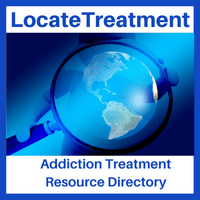Advocacy Alert: Letter Regarding Tribal Tax and Investment Reform Act of 2024
September 12, 2024
On September 5, 2024, the National Behavioral Health Association of Providers signed on to the below letter that was sent to Representatives David Schweikert and Gwen Moore.
The American Indian/Alaska Native Health Partners coalition thanks you for including Sections 12 and 13 in H.R. 8318 – the "Tribal Tax and Investment Reform Act of 2024" – that would amend the tax code to provide health care professionals who receive student loan repayments and scholarships from the Indian Health Service (IHS) the same tax-free status enjoyed by those who receive National Health Service Corps (NHSC) loan repayments.
Under the IHS and NHSC programs, health care professionals provide needed care and services to underserved populations. However, unlike the NHSC program the IHS uses a large portion of its resources, over $9,000,000, to pay the taxes that are assessed on its loan and scholarship recipients. In its Fiscal Year 2025 budget justification the IHS stated its support for the tax change and the positive impact it would have on the Service's hiring practices:
"The ability to exempt scholarship and loan repayment funds from gross income would make this recruitment and retention tool more attractive to potential participants because it would reduce the employee's taxable income and it would allow IHS to make more awards with funds that would otherwise go toward taxes. Based on IHS' calculations, for the last complete award year exempting the IHS Loan Repayment Program would allow IHS to award an additional 218 loan repayment contracts in a given year."
The Service reported in its Fiscal Year 2025 Budget Justification that it has over 1,330 vacancies for health care professionals. The National Indian Health Board testified in July before the House Natural Resources Subcommittee on Indian and Insular Affairs that those numbers breakdown unevenly:
"As of February 2024, IHS had a vacancy rate for physicians of 36 percent; for behavioral health providers, that rate is 44 percent. The dentist vacancy rate is 37 percent, and nurse practitioner vacancy is 35 percent. When we look at specific Areas, individual rates go as high as 58 percent vacancy rate for physician assistants in Billings Area, 63 percent vacancy rate for physicians in Great Plains and 78 percent for behavioral health providers in the Albuquerque Area."
The loan repayment program has proven to be the IHS's best recruitment and retention tool to ensure an adequate health workforce to serve in remote locations. In Fiscal Year 2023, a total of 1,821 health professionals were receiving IHS loan repayment. Unfortunately, due to a lack of funds the Service was unable to hire 455 applicants who had applied for loan repayment. The IHS stated, "The inability to fund these 455 health professional applicants is a significant challenge for the recruitment efforts of the agency."
Recruitment and retention tools like loan repayment and scholarship funding are vital for providing needed health care to Native Americans. The taxation of these benefits limits the Service's reach to health professionals who are interested in doing this critical work, especially in remote locations.
Thank you again for your bipartisan leadership in including Sections 12 and 13 within H.R. 8318 – the Tribal Tax and Investment Reform Act of 2024 that make IHS loan repayment tax free. We look forward to working with you to correct this situation.
We encourage you to contact the representatives and share your thoughts on this letter.
Questions? Concerns?
As always, we want your input. What topics would you like to see us cover in future Advocacy Alerts? If you are a representative of a state association and have something for us to consider for an Advocacy Alert, let us know!
Did you know NBHAP members get regular access to our advocate in Washington, DC? If you have any questions about NBHAP's advocacy efforts, please contact us.

A national membership association that provides education and advocacy for those in the behavioral health and addiction treatment industries.
We are the leading and unifying voice of addiction-focused treatment programs.



